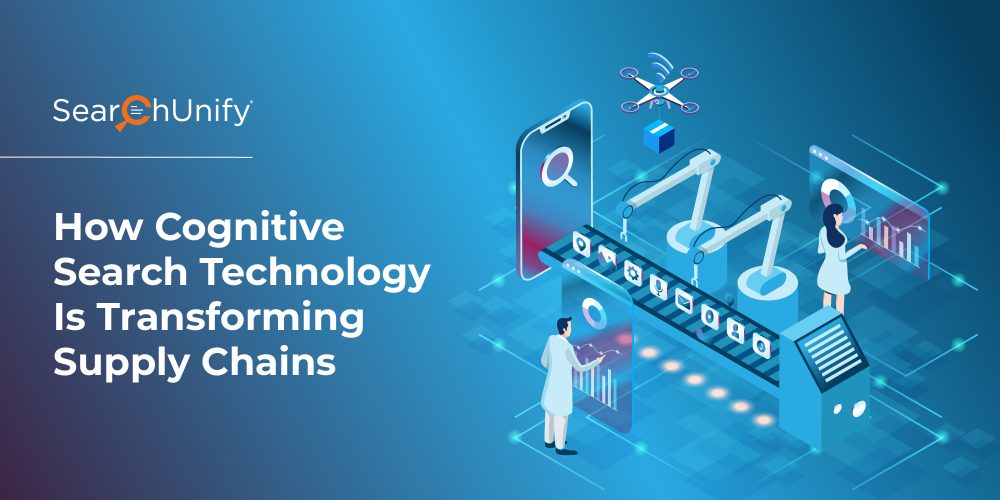
There is no denying that distributed manufacturing has its own competitive advantages – efficient utilization of resources, fewer barriers to market entry, reduced amount of capital, and the list goes on. However, it has its downside as well.
Unlike traditional manufacturing, where raw materials are brought together, assembled, and fabricated in remote centralized factories and then distributed to customers; distributed manufacturing takes place at multiple decentralized manufacturing plants in order to produce the final product somewhere nearby customers. Therefore, teams that were once working under one roof are now scattered across multiple sites and geographies.
These distributed teams are advertently creating a diverse deluge of data that is spread across disparate systems and timelines. The failure to access this critical database doesn’t just leave workers disconnected, but it also affects the operational excellence of your organization.
For many organizations, AI-powered cognitive technologies have proved their mettle by revolutionizing information discovery. By surfacing the right knowledge at the right time, they haven’t just enhanced productivity, but also helped organizations attain operational efficiencies. Let’s see how.
Provide a 360-Degree View of Supply Chain
For most manufacturing units, products consist of numerous parts that take on a life of their own. With a variety of products being manufactured by a single manufacturing unit, imagine the count of parts that needs to be tracked. Therefore, supply chains have become increasingly complex; and forming a rhythm between multiple suppliers presents a major challenge, especially when the information is siloed.
This is where cognitive search comes into play. With the ability of indexing both structured and unstructured data, it saves manufacturers from all the hassle of digging into incessant product manuals. By uncovering product details, customer information, contracts, rules, and regulations, etc., cognitive technology gives a unified 360-degree view of the supply chain. Therefore, accelerating R&D, optimizing supply chains, improving engineering maintenance, and avoiding redundant parts manufacturing.
Reshape Unstructured Data with NLP
Unstructured data can be an untapped goldmine for businesses, but since it remains hidden in non-uniform formats, accessibility becomes the prime pain point. Cognitive search engines leverage machine learning algorithms and NLP that help you extract meaning out of huge data volumes of unstructured data.
The machine learning algorithms of cognitive technology help you leverage unstructured data from social media, videos, emails, etc. to map out relationships between global manufacturing processes, supply chains and teams, thus, empowering you to gain insights into user behavior.
Trace a Network of Experts
Many organizations struggle to create the best teams for new projects because the desired expertise is often scattered across teams and geographies. But fortunately, they leave digital footprints in the form of information they access and create. AI-powered insight engines leverage NLP that helps to trace those footprints.
Cognitive technology indexes big data volumes to uncover employees’ work histories, training, education, expertise, and experience on different projects in order to discover experts that best fit the bill. Project managers analyze the report created by insight engines in order to identify experts within the organization in no time.
Manage Disruptions Proactively in the Supply Chain
In the industry where time and resources can make or break your company’s bottom line, predictive analytics is no longer just a helpful feature, it’s a necessity. By making predictions about increasing demands and logistics, it helps you adapt to the changing business environment.
Predictive models of cognitive tools leverage historical and transactional data to identify patterns for risks and opportunities in a specific condition. By tracking the entire supply chain, it gives you actionable insights into information, like which parts need to be produced next, shipments for which orders need to be planned, and so on. With better supply chain visibility, manufacturing units can reduce costs and improve efficiency.
Virtual Assistants for Procurement
Imagine calling help-desk operators time and again to obtain information regarding procurement needs. It would unnecessarily lead to delayed procurements due to forced waiting time in retrieving the information. Again, cognitive tools come to your rescue, especially the ones with virtual assistants.
Virtual assistants help you automate routine tasks and deflect L1 queries, like stock availability, shipment status, contract details, supplier status, etc. By driving self-service, you free up your agents to focus on high value tasks and make their day easier.
Need help with deciding on the right cognitive search solution for your enterprise? Here’s a guide for you!
Zeroing in on the right search solution for your enterprise can be a daunting task. Here’s a comprehensive guide that will make it a breeze to evaluate solution capabilities & save you a lot of time.











